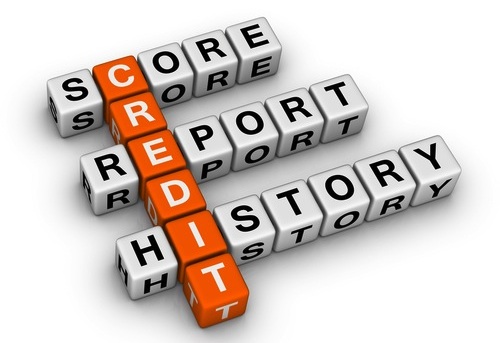Credit has become a seemingly indispensable part of our everyday lives. Consequently, it helps to have a clear understanding of personal credit reports and credit ratings. This knowledge includes learning how credit bureaus determine your credit score, the importance of your credit score, and tips on acquiring good credit and maintaining it.
The term “FICO” score is synonymous with credit rating or credit score. FICO actually stands for the Fair Isaacs Corporation, which is the firm that developed the software used by credit bureaus to calculate credit scores.
Understanding Your Credit Rating
Credit refers to borrowing money with a promise to repay the funds within a specified period and meet other conditions of the loan. A credit rating consist statistical data, based on a person’s history, which measures the likelihood of an individual paying back the borrowed money and according to terms of the agreement.
Each credit bureau has its proprietary method for determining factors, which make up credit ratings or scores. Generally, the factors used to compute credit ratings include the following items:
- Payment history
- Current debts
- Length of time for credit history
- Type of credit accounts
- Frequency of applications for credit
The three major credit bureaus, in the U.S. Experian, Equifax, and TransUnion, may issue different credit scores for the same individual based on its criteria, and how it weighs information contained in its database. The credit rating can range from extremely high risk—350 credit score to extremely low risk – 850 credit score.
Credit and Credit Ratings
Credit reporting by creditor makes for a faster more efficient system for granting credit to individuals and businesses. Reporting credit information makes it feasible for banks to make loans, stores to issue credit, and businesses to manage day-to-day operations. For example, when a consumer applies for a credit card, mortgage, or utility hookup, the creditor can quickly check the person’s credit rating with the credit bureau. The credit score lets the creditor know what risks the individual poses to them based on the credit rating.
If a creditor determines that you present an extreme risk, the creditor can decide not to approve the credit application. Some lender will approve the applicator for poor risks but will charge the borrower a higher interest rate that the rate paid by a person with a higher credit rating.
Tips for Raising Your Credit Score
Obtain copies of your credit report to find out where you currently. The rules require the three major credit bureaus to allow consumers free credit reports annually. Usually, you will have to pay to see your credit scores. If you have a credit score below 760, you probably pay higher interest rates.
Following are some tips you can employ to raise your credit rating:
- Pay your bills on time and the correct account
- Lower your debt-to-income ratio by paying down balances on accounts
- Limit the number of hard-inquiries (applications for credit) on your credit report
- Avoid opening account with finance companies
Following these recommendations tips can help you maintain or improve your credit rating.
Credit has become a seemingly indispensable part of our everyday lives. Consequently, it helps to have a clear understanding of personal credit reports and credit ratings. This knowledge includes learning how credit bureaus determine your credit score, the importance of your credit score, and tips on acquiring good credit and maintaining it.
The term “FICO” score is synonymous with credit rating or credit score. FICO actually stands for the Fair Isaacs Corporation, which is the firm that developed the software used by credit bureaus to calculate credit scores.
Understanding Your Credit Rating
Credit refers to borrowing money with a promise to repay the funds within a specified period and meet other conditions of the loan. A credit rating consist statistical data, based on a person’s history, which measures the likelihood of an individual paying back the borrowed money and according to terms of the agreement.
Each credit bureau has its proprietary method for determining factors, which make up credit ratings or scores. Generally, the factors used to compute credit ratings include the following items:
- Payment history
- Current debts
- Length of time for credit history
- Type of credit accounts
- Frequency of applications for credit
The three major credit bureaus, in the U.S. Experian, Equifax, and TransUnion, may issue different credit scores for the same individual based on its criteria, and how it weighs information contained in its database. The credit rating can range from extremely high risk—350 credit score to extremely low risk – 850 credit score.
Credit and Credit Ratings
Credit reporting by creditor makes for a faster more efficient system for granting credit to individuals and businesses. Reporting credit information makes it feasible for banks to make loans, stores to issue credit, and businesses to manage day-to-day operations. For example, when a consumer applies for a credit card, mortgage, or utility hookup, the creditor can quickly check the person’s credit rating with the credit bureau. The credit score lets the creditor know what risks the individual poses to them based on the credit rating.
If a creditor determines that you present an extreme risk, the creditor can decide not to approve the credit application. Some lender will approve the applicator for poor risks but will charge the borrower a higher interest rate that the rate paid by a person with a higher credit rating.
Tips for Raising Your Credit Score
Obtain copies of your credit report to find out where you currently. The rules require the three major credit bureaus to allow consumers free credit reports annually. Usually, you will have to pay to see your credit scores. If you have a credit score below 760, you probably pay higher interest rates.
Following are some tips you can employ to raise your credit rating:
- Pay your bills on time and the correct account
- Lower your debt-to-income ratio by paying down balances on accounts
- Limit the number of hard-inquiries (applications for credit) on your credit report
- Avoid opening account with finance companies
Following these recommendations tips can help you maintain or improve your credit rating.







